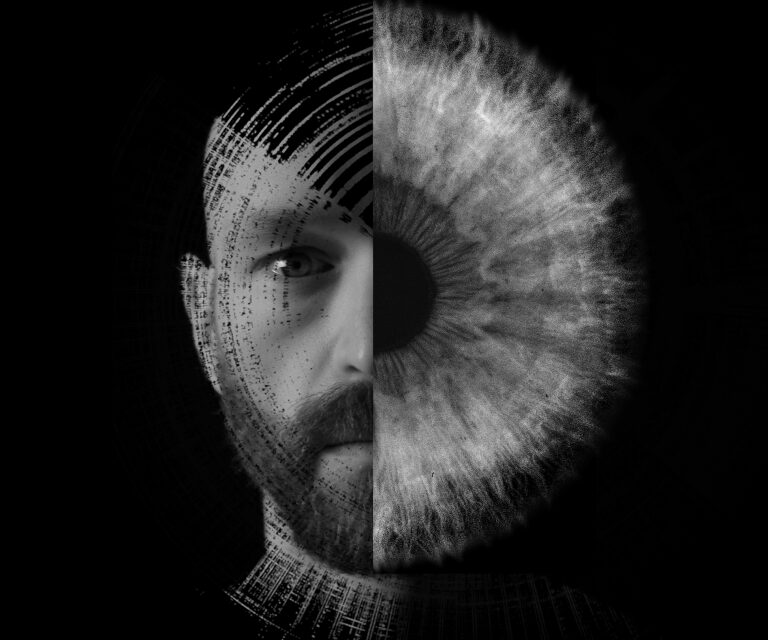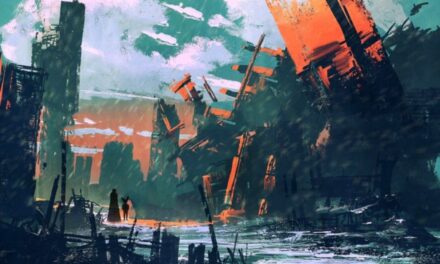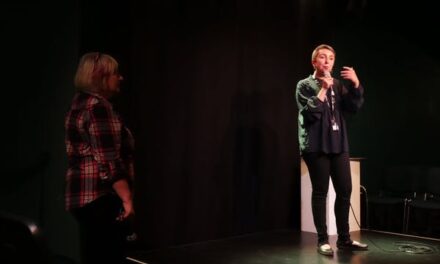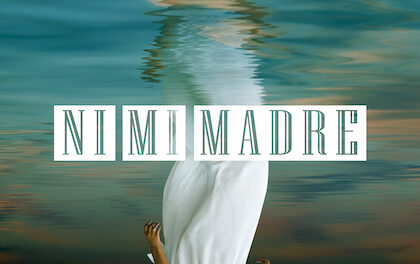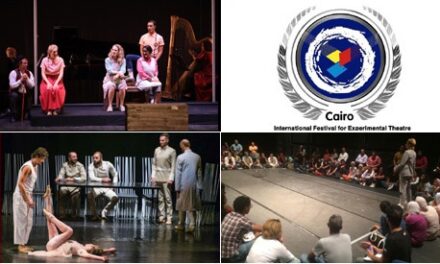As the theatre world in Canada and the US anxiously expects the final re-opening of Broadway and still lives in the uncertainty marked by Covid-19 without the clear promise of what the future days will bring, something different and exciting in theatre has emerged.
Festival of Live Digital Arts – FOLDA www.folda.ca – June 9-13, 2021.
The last twenty months have profoundly challenged theatre both on a structural and artistic level. Faced with the brutal closure of venues, rehearsal halls, studios, and even open public spaces. Limited by health, safety, and social distancing rules, many theatre artists have turned to the internet as the only available space for the creation and presentation of their work.
An online world has become one endless performance venue.
Theatre as an art form thrives on transformation and change, but when it comes to the structural changes of how and why the work is created, theatre becomes very resistant to the change.
In 2018, recognizing the need for this structural and artistic change, a Spiderweb Performance Company (www.spiderwebshow.ca) has founded the Festival of Live Digital Arts – FOLDA (www.folda.ca) in Kingston, Ontario, Canada. Spiderweb Performance Company is run by three artistic leaders in rotation, Sarah Garton Stanley, Adriene Wong, and Michael Wheeler. It is “a new structure with one AD but a triangle of consensus-based leadership shared amongst Adrienne, Sarah, and myself”, as Michael explained in the conversation for this article. FOLDA, born outside of major centers such as Toronto or Montreal is a meeting point between in-real-life and digital worlds. This and last year due to the pandemic FOLDA opted for an online-only format. At the time when FOLDA was founded, the festival mandate and vision were considered niche, alternative and experimental. The idea of FOLDA is to bring people together who are actively engaged with what is happening in live and digital arts and are willing to evaluate and interrogate it. Today the understanding of Digital Performance has grown and exponentially changed. FOLDA could not be seen anymore as a niche festival for passionate theatre experimentation. The importance of FOLDA as a platform that continuously seeks new and innovative ways of supporting digital practice becomes more significant every day. As producers are inviting the in-person audience, certain public voices desperate for a “return to the normal” are calling digital theatre a “placeholder”. In doing so they are dismissing and erasing artists, theatre companies, and new audiences who were actively engaged throughout the pandemic. Theatre is a conversation among many things and digital performance is at the center of this conversation at the moment. When asked if digital performance needs to be considered theatre or if it is wanting to be its own form, Michael answers: “This is a great question I ask students in the Media and Performance Production program at Queen’s University where I am an Assistant Professor. The thing they both share is liveness. What makes them different is physical co-presence. Right now because the alternate digital realities are in their infancy, they seem less intimate, and experientially physical co-presence seems superior. But I think this will change as the tech improves. At FOLDA this year (2021) there was a piece called Frequencies, that used VR in a way that integrated a live performer and a live VR environment operated by a second person and then integrated the two feeds for video broadcast. What that meant was that the performer could have a set created by unlimited holograms when required. This is not possible in the physically co-present theatre. One thing is for sure – it is a few steps away from Peter Brook’s chalk circle – in that it does not just require a human. So digital theatre comes embedded with more equity and access issues as technology is required.”
Conversations like this make FOLDA stand out as a unique space and place where the impact of digital culture on other art forms is explored and discussed. As a festival, FOLDA is more than just an event where works of live digital art are presented. Through the open resource and incubator programs, FOLDA is supporting the creative dialogue among artists and producers, and the creation of new work. The festival is demonstrating how theatre-making in the digital context is establishing new ways in how, why, and what is created. The idea of “hybrid-model” as a way forward in the post-pandemic world is becoming stronger and more articulated. Michael says: “There seems to be a consensus that post-pandemic arts will move to a ‘hybrid model’ wherein co-present events will be bundled with various digital opportunities. How this will all play out is on everyone’s minds. Livestreams are where a lot of imaginations start – but many of my favorite things have been audio-based during the pandemic. Electric Company (Vancouver, British Columbia, Canada) worked on some standalone VR experiences at FOLDA in our first year that was complementary to then play Full Light of Day – we’re going to see more stuff like that too. The other thing on this topic is the collapse of (physical) distance”.
FOLDA is setting the grounds for the new generations of cultural producers and creators embracing the digital shift as a way of artistic being.
FOLDA is a festival that we did not know that we needed. In expecting the 2022 FOLDA visit www.folda.ca
This post was written by the author in their personal capacity.The opinions expressed in this article are the author’s own and do not reflect the view of The Theatre Times, their staff or collaborators.
This post was written by Stefan Dzeparoski.
The views expressed here belong to the author and do not necessarily reflect our views and opinions.

